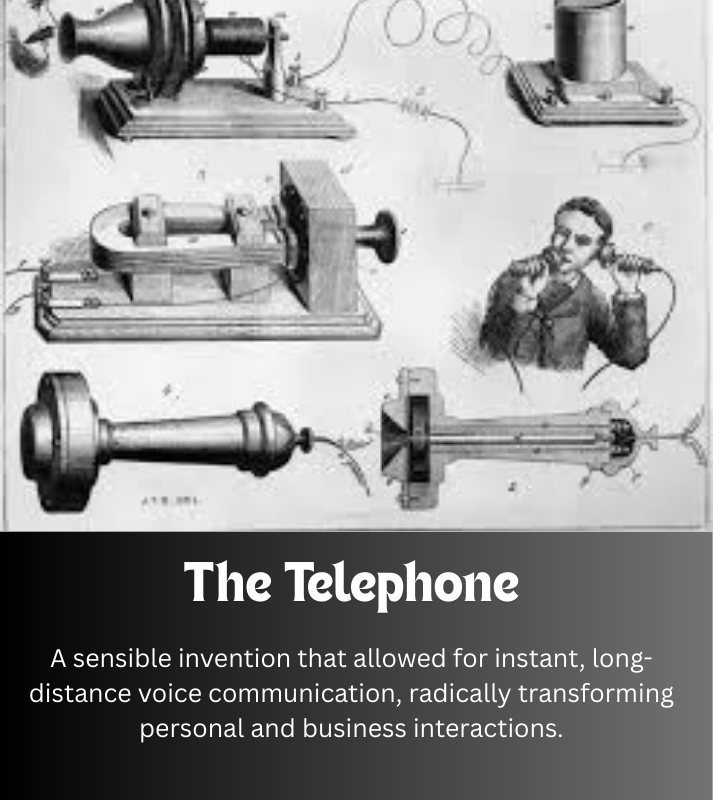The Telephone
A Revolution in Communication


The telephone is a communication device that converts sound, such as a human voice, into electrical signals for transmission over distances, and then converts those signals back into sound. This sensible invention, which allowed for instant, long-distance voice communication, fundamentally transformed personal and business interactions, making the world feel smaller and more connected. Before the telephone, communication over long distances relied on slower methods like mail, telegrams, and messengers.
The Genesis of the Telephone
The invention of the telephone is often credited to Alexander Graham Bell, who filed a patent in 1876. However, the story is more complex. Elisha Gray, another inventor, was working on a similar device at the same time. While both Bell and Gray submitted patent applications on the same day, Bell's was granted first. Bell’s device, based on the principle of converting sound vibrations into electrical signals, was the first to be commercially successful. His famous first words transmitted over the telephone were to his assistant, Thomas A. Watson: "Mr. Watson, come here, I want to see you."
The invention of the telephone is often credited to Alexander Graham Bell
How It Works: A Simplified Explanation
A basic telephone system consists of two main parts: a transmitter (or microphone) and a receiver (or earpiece). When you speak into the transmitter, your voice creates sound waves that cause a diaphragm inside the phone to vibrate. These vibrations are then converted into varying electrical signals. These signals travel through a wire to the other person's phone. At the receiving end, the electrical signals are converted back into vibrations by a diaphragm in the receiver, which then produces sound waves that the listener can hear.
The Impact: A Global Transformation
The telephone's impact on society was nothing short of revolutionary. It broke down geographical barriers, allowing people to communicate instantly across vast distances.
Business and Commerce: The telephone radically changed how business was conducted. It enabled real-time negotiations, faster transactions, and the ability to manage operations from afar. Businesses could now communicate with suppliers, customers, and partners instantly, leading to increased efficiency and the development of new industries.
Personal and Social Life: The telephone reshaped social interactions. Families and friends could stay in touch despite living far apart, strengthening social bonds. It provided a sense of security, allowing people to call for help in emergencies. The ability to simply "call someone up" became a fundamental part of daily life.
The Information Age: The telephone laid the groundwork for the modern communication infrastructure. It was the precursor to technologies like the internet and mobile phones, establishing the fundamental concept of a connected world where information could travel at the speed of light.
The telephone's journey from a simple device to a global network of interconnected lines has made it a cornerstone of modern life, proving itself to be a truly one-in-a-million invention.
Discover the extraordinary and unique stories.
Inspire
© 2025. All rights reserved.
